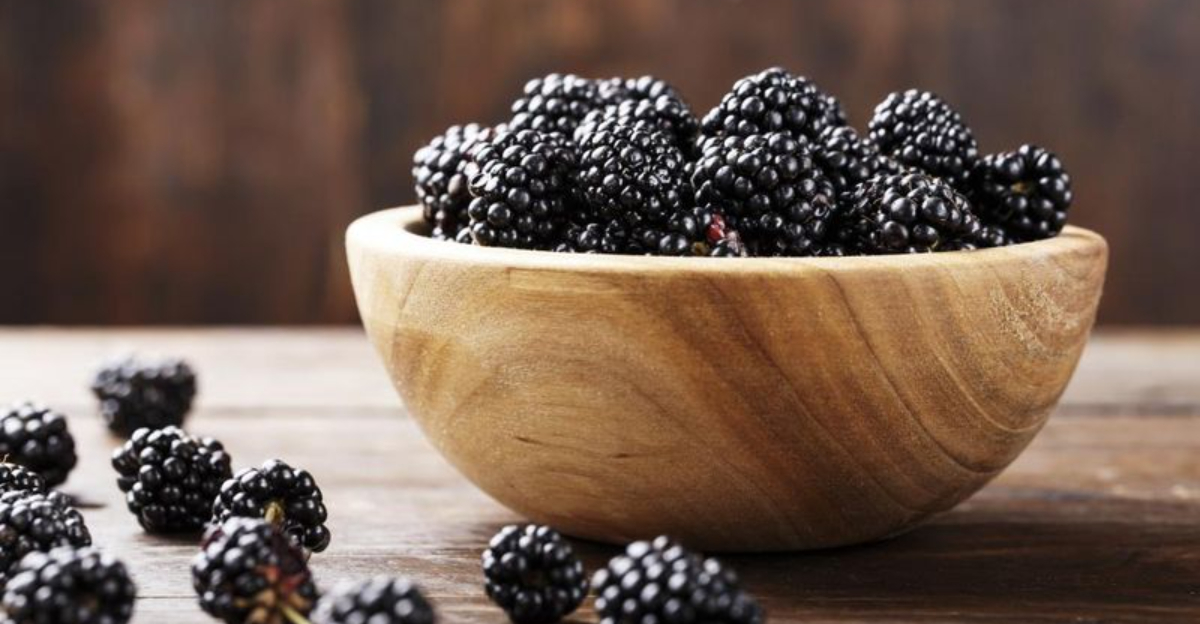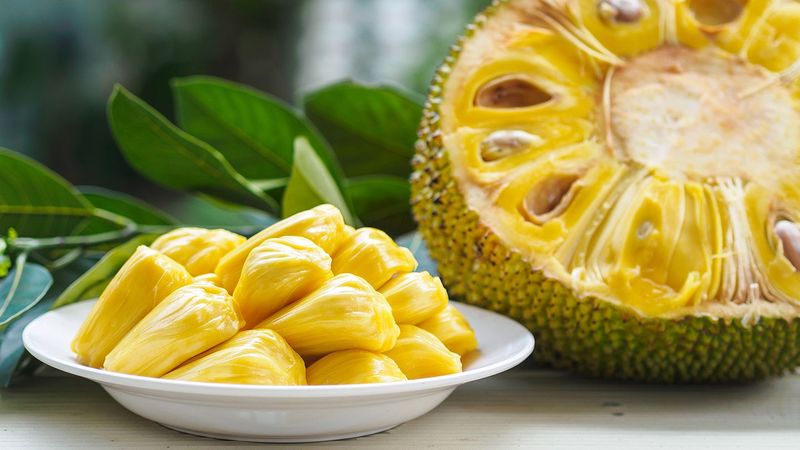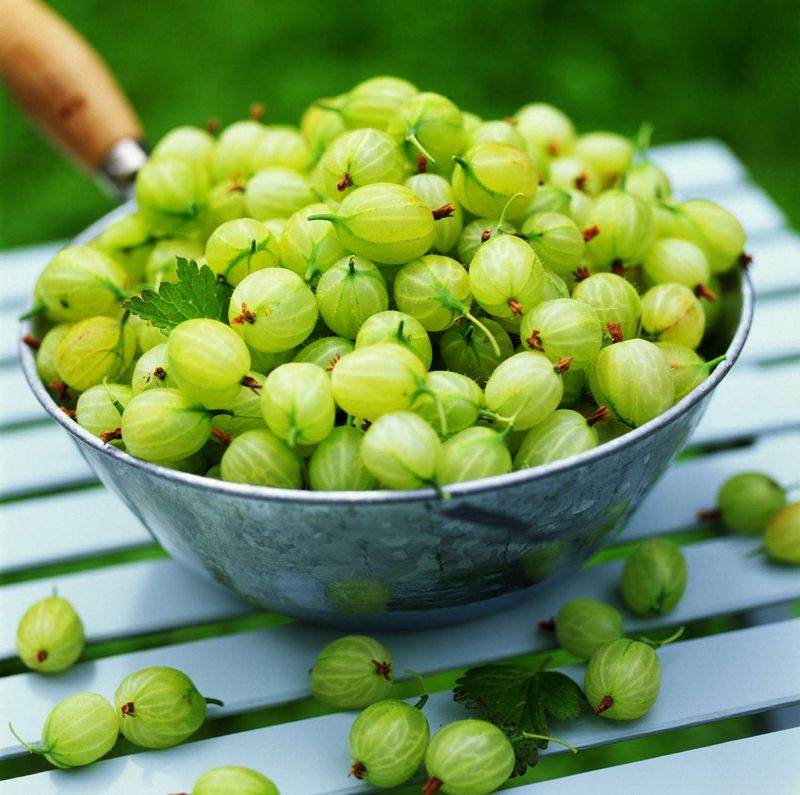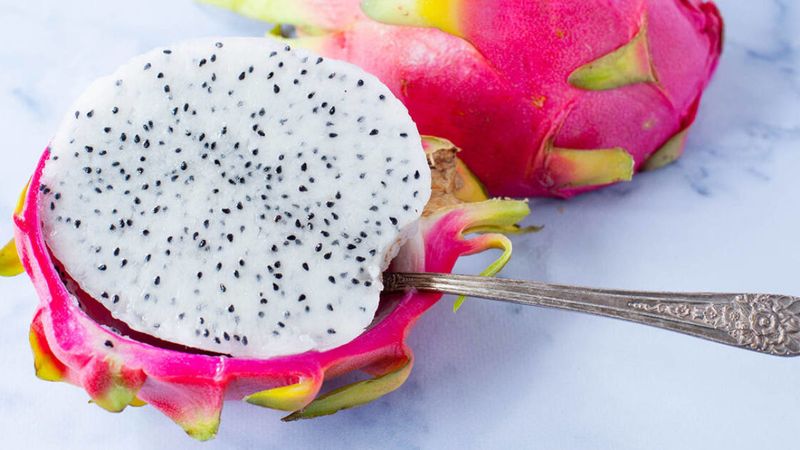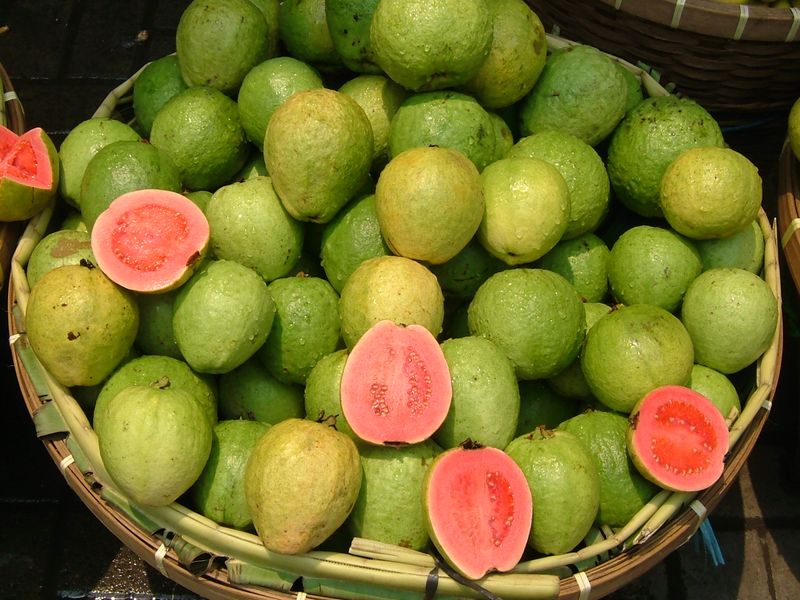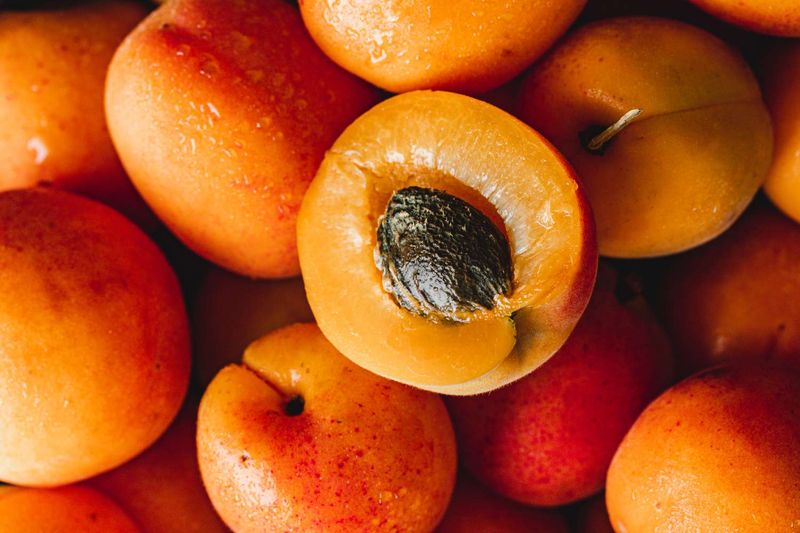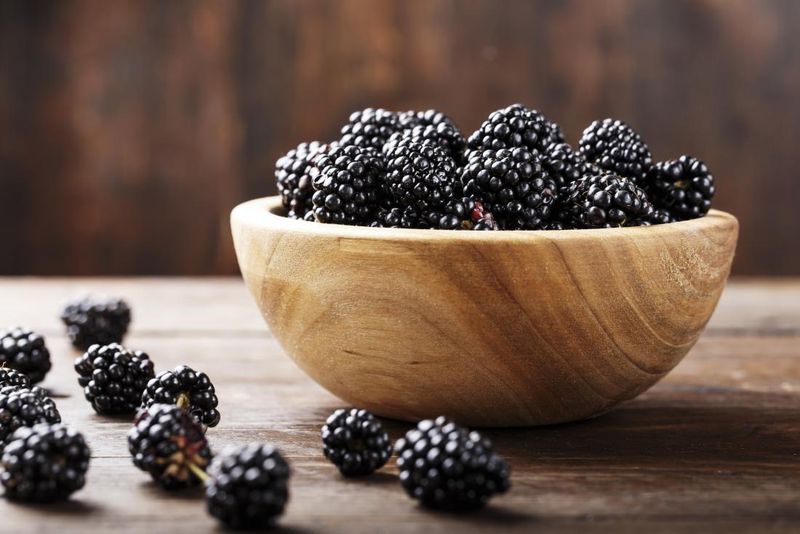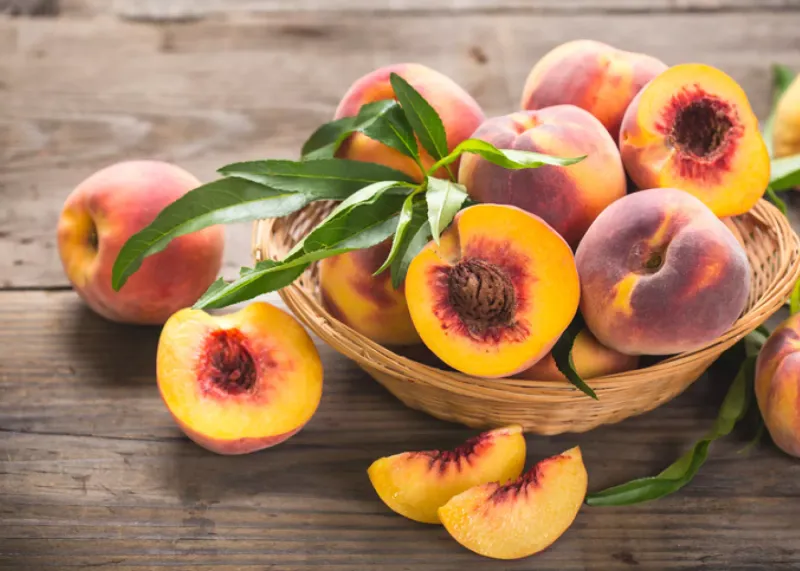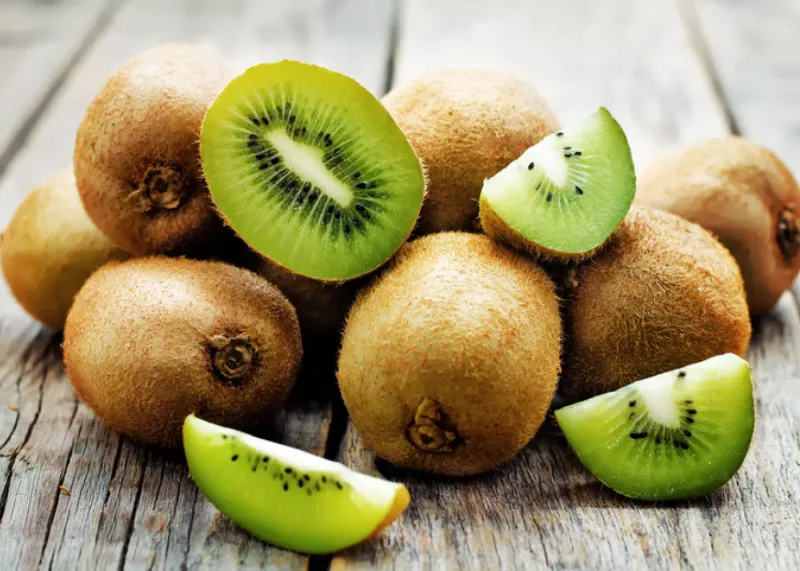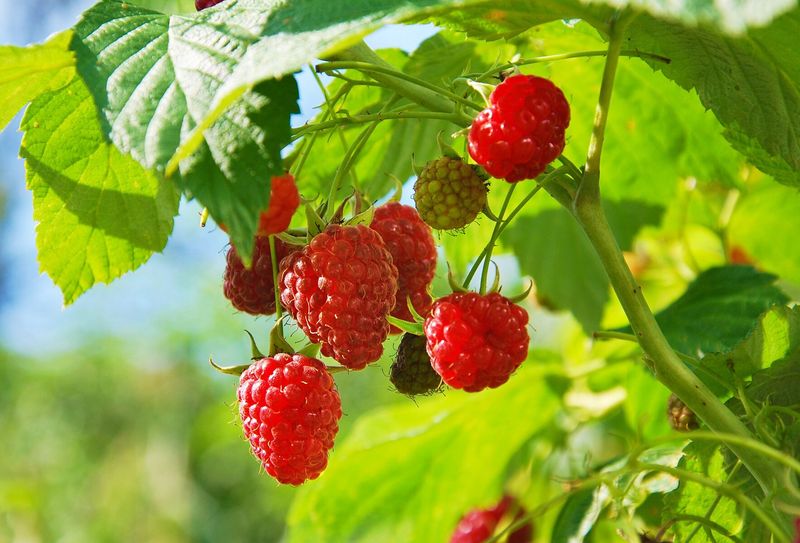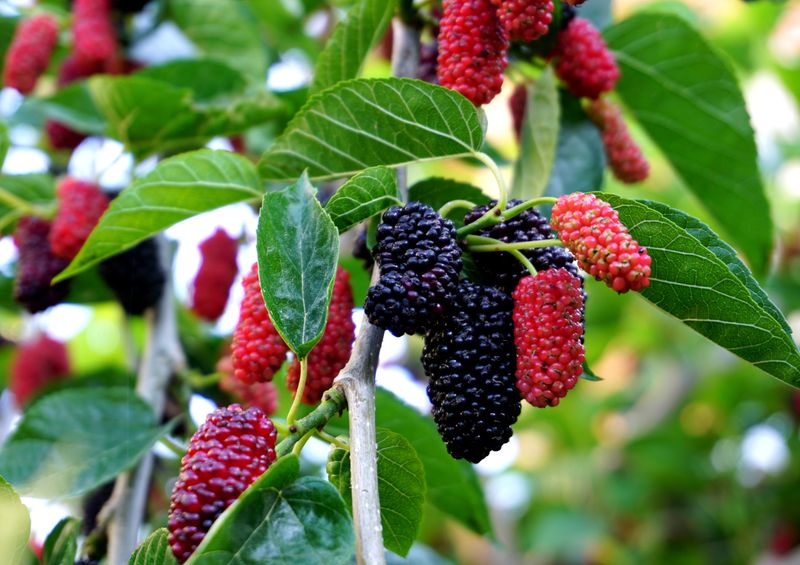Although fruits aren’t usually celebrated as high-protein foods, some varieties pack a surprising protein punch, making them a valuable addition to a balanced diet.
Adding these fruits to your meals can enhance your protein intake while also delivering essential vitamins and minerals.
In this post, we highlight ten fruits notable for their protein content and provide tips on how to incorporate them into your everyday meals.
1. Jackfruit
Have you ever thought of jackfruit as a protein source? This tropical giant might surprise you with its 3 grams of protein per cup. The jackfruit’s spiky exterior hides a sweet, fleshy interior that’s perfect for savory dishes too.
In fact, many vegans use it as a meat substitute due to its texture. It’s native to South Asia but has found fans worldwide.
Enjoy it in curries or as a pulled ‘pork’ alternative. With its versatility and unique taste, jackfruit is a must-try for anyone looking to diversify their protein intake.
2. Gooseberries
Small but mighty, gooseberries offer a surprising protein hit with about 1 gram per cup. These tart little gems are often overshadowed by their sweeter berry cousins.
When in season, enjoy them fresh, or transform them into jams or pies for a tangy twist.
Originating from Europe and Asia, they’ve been cherished in traditional recipes for centuries. If you’ve never tasted these zesty berries, now’s the time to add them to your grocery list and experience their unique flavor and nutritional benefits.
3. Dragon Fruit
The exotic dragon fruit, with its flamboyant pink skin and speckled flesh, isn’t just about looks; it offers 2 grams of protein per cup. Its mildly sweet flavor is a refreshing addition to fruit salads or smoothies.
Native to Central America, it’s now grown in many tropical regions. Often seen as a symbol of health, dragon fruit is not just a treat for the eyes but also a nutritious choice.
Try it chilled for a cooling snack or in a vibrant smoothie bowl to boost your day with color and protein.
4. Guava
Guava stands out as a top fruit for protein content, boasting about 4.2 grams of protein per cup. This tropical delight is not only rich in protein but also loaded with vitamin C, fiber, and antioxidants, making it a well-rounded addition to your diet. Enjoy guava fresh, in smoothies, or as a tangy addition to salads.
For those looking to enhance their protein intake, try incorporating guava into your breakfast routine. Its sweet flavor pairs well with yogurt or cottage cheese, providing a nutritious and satisfying start to your day.
5. Avocado
Avocados are often celebrated for their healthy fats, but they also provide approximately 3 grams of protein per cup. This creamy fruit is versatile and can be used in a variety of dishes from smoothies to sandwiches. Its protein content, along with heart-healthy monounsaturated fats, makes it a valuable diet addition.
To maximize avocado’s benefits, try using it as a substitute for mayo or butter in recipes. Its creamy texture enhances the protein content of meals, especially when paired with eggs or beans for a balanced dish.
6. Apricots
Apricots may be small, but they offer a good protein boost with 0.5 grams per fruit. When dried, apricots concentrate nutrients, becoming even richer in protein and fiber. These golden fruits are sweet and tangy, perfect for snacks or baking.
Consider adding dried apricots to your trail mix for an easy protein-rich snack. Their chewy texture and natural sweetness complement nuts and seeds, providing a balanced mix of protein and energy to keep you going throughout the day.
7. Blackberries
Blackberries offer about 2 grams of protein per cup, making them a tasty and nutritious snack. They are packed with vitamins, especially vitamin C and K, and are known for their high antioxidant content. These berries are perfect for adding to breakfast cereals, yogurts, or eaten fresh.
For a protein-packed breakfast, mix blackberries with Greek yogurt and a sprinkle of granola. This combination not only satisfies your taste buds but also fuels your body, providing energy and nutrients essential for an active lifestyle.
8. Oranges
While oranges are famed for their vitamin C, they also provide a modest amount of protein, about 1.2 grams per cup. These juicy fruits are refreshing and versatile, perfect for juices, salads, or a quick snack.
Enhance your meals by incorporating oranges into salads or salsas. Their bright flavor complements savory dishes, providing not just a protein boost but also essential nutrients that support overall health.
9. Peaches
Peaches bring more than just a sweet taste to the table; they offer around 1 gram of protein per fruit. This juicy fruit is a summer favorite and can be enjoyed fresh, grilled, or as part of a dessert.
For a simple protein-rich treat, pair sliced peaches with cottage cheese or add them to your smoothies. Their natural sweetness enhances the flavor without the need for additional sugar, making it a healthy choice for those watching their diet.
10. Kiwi
Kiwi is a small fruit with a big nutritional impact, offering about 2 grams of protein per cup. Known for its vibrant green color and tangy taste, kiwi is also rich in vitamin C and dietary fiber.
Incorporate kiwi into your diet by adding it to salads or using it as a topping for desserts. Its unique flavor and high nutrient content make it a refreshing addition to any meal, providing essential vitamins and a protein boost.
11. Raspberries
Raspberries are not only delicious but also pack a protein punch with about 1.5 grams per cup. These berries are rich in fiber and antioxidants, supporting digestive health and overall wellness.
Try incorporating raspberries into your breakfast by adding them to oatmeal or smoothies. Their natural tartness balances well with sweeter ingredients, creating a nutritious and satisfying meal that fuels your day.
12. Bananas
Bananas are a versatile fruit, providing approximately 1.3 grams of protein per fruit. They are rich in potassium and vitamins, making them a staple in many diets. Their soft texture and sweet taste make them a favorite for smoothies and desserts.
For an energizing snack, pair bananas with almond butter. This combination not only boosts your protein intake but also provides healthy fats, creating a balanced and satisfying treat ideal for post-workout recovery.
13. Mulberries
Mulberries are a lesser-known fruit that packs about 2 grams of protein per cup. These berries are often dried and used in teas or snacks due to their sweet-tart flavor and high nutrient content. Mulberries are excellent for supporting immune health and providing essential minerals.
Include mulberries in your diet by adding them to baked goods or cereals. Their unique flavor enhances the overall taste, making your meals both nutritious and delicious while contributing to your daily protein needs.
